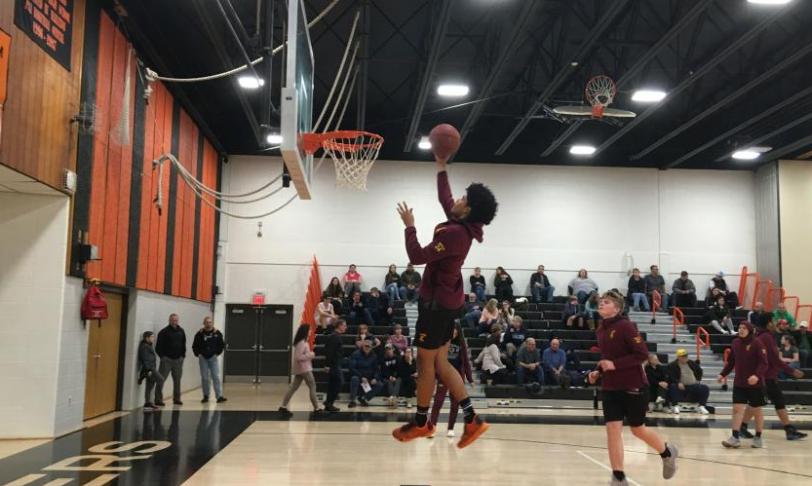Type 1 diabetes approached my life at the age of 10 and it hasn't gotten easier. To take care of diabetes requires a lot of responsibility, anything can go wrong if you don't take care of yourself. I have been to the hospital a bunch of times, but that didn't stop me from taking care of myself and continuing to build myself up. Yes, the outcomes can be scary sometimes, but that doesn't mean you have to fear it. I didn't have time to sit and cry about it, I had to learn and adapt. And because of that, I became the man I am today.
I use my diabetes as motivation because there was a time where I tried out for a basketball team and got cut. The coach’s excuse was that he was afraid I would pass out on the court mid-game. I was filled with mixed emotions and wanted revenge. I started working on myself, physically and mentally I was trying to better myself because my dream was to play for a high school team.
I started playing for smaller teams, I would give it my all and wouldn't stop until I made my goal come true. Months later, I transferred to Lincoln Leadership and Coach Pernell Hosier gave me the opportunity to play for the varsity team. We continued to go to the district playoffs, but fell short.
Just because I am on a high school team now doesn't mean that my job is done. I continue to work on myself for the next goal which is to play in college. My overall goal as an athlete with diabetes is to show others like me that anything is possible, to never give up and to never let people tell you that you can't because of your condition. Diabetes is a minor setback for a major comeback. As athletes with diabetes, we need to take care of our bodies more than everyone else. If your blood sugar is high while you play, it can affect the way you play—almost like a deer in headlights, your brain doesn't know what to do. When you play with low blood sugar, you need to stop immediately and eat or drink something with high carbohydrate or your body will begin to shut down. There are risks, but if we take good care of ourselves, we are perfectly fine while playing.
After intense workouts or games, if the body is not hydrated enough, the body's muscles start to cramp and can raise blood sugar levels. That can affect the respiratory system causing shortness of breath and/or fatigue, but if the body is well hydrated, all feelings can be avoided. The recovery process is simple, just like anybody else—eat, cover medicine, rest and repeat. An athlete with diabetes can go through so much, as long as his sugars are under control, everything is, and will be, fine.









